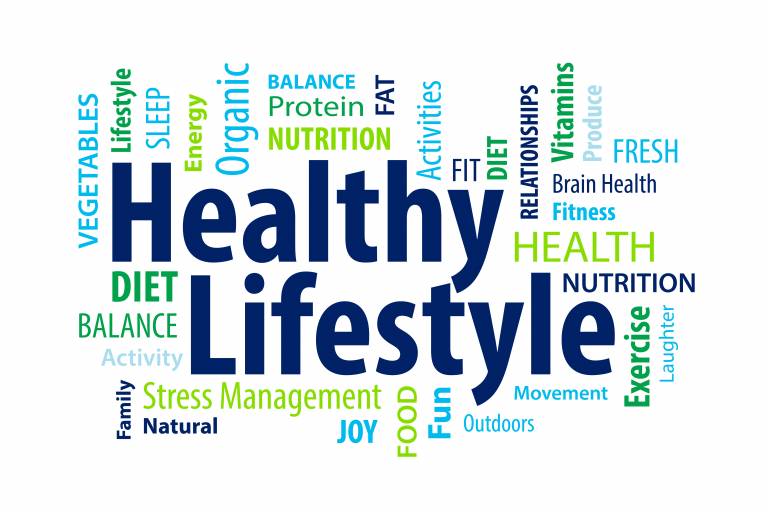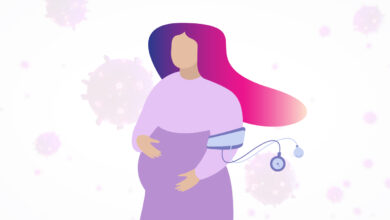Beyond the Scale: Rethinking Health in a Culture Obsessed with Thinness

Introduction
In today’s world, waistlines have become an obsession. Turn on the TV, open Instagram, or scroll TikTok and you’ll see it: the message that slimmer is better, that thinness is the proof of health, discipline, and worth. It’s repeated so often that many of us stop questioning it. But this idea is not just wrong—it’s harmful. Equating thinness with health leaves countless people feeling inadequate, while overlooking what true wellness really requires. Health does not have a single shape or size. The sooner we challenge this damaging myth, the sooner we can build a culture that prioritizes real well-being over appearance.
Causes of the Issue
Cultural Factors
Body ideals are deeply rooted in culture, and Nigeria is no exception. Traditionally, a fuller figure was celebrated. Among the Yoruba, Igbo, and Efik, a round, well-fed body was considered beautiful, healthy, and a sign that one was cared for and prosperous. In parts of Nigeria, brides-to-be once underwent “fattening room” rituals to deliberately gain weight as a mark of readiness for marriage. Larger bodies signaled fertility, wealth, and social status.
But today, these traditions are colliding with modern pressures. Urban centers like Lagos and Abuja have become hubs of new ideals: slim, sculpted, gym-honed bodies that align with global trends. Billboards feature lean models; gyms promise “summer bodies” in weeks; and “slim tea” ads flood social media. For many young Nigerians, the messages are conflicting: elders might praise fullness as a sign of health and success, while peers and influencers equate slimness with beauty, status, and modernity. This clash creates confusion, insecurity, and pressure to conform, often at the expense of genuine health.
Social Media
Social media is one of the most powerful drivers of these new ideals. Platforms like Instagram, TikTok, and YouTube are filled with images and videos of sculpted abs, tiny waists, and dramatic “before and after” shots. Influencers, many without real nutrition or fitness credentials, offer miracle diets, detox teas, and extreme workout challenges that promise quick transformations.
These posts are often highly curated, using flattering lighting, filters, and strategic posing to craft an illusion of perfection. They rarely show the reality behind the scenes: the stress, obsessive behavior, and even disordered eating required to maintain these bodies. Young people, in particular, are vulnerable to these messages. When their feeds are filled with “fitspiration” and #bodygoals, it reinforces the dangerous idea that fitness is about suffering, restriction, and chasing a single body type.
In Nigeria, these trends have exploded with smartphone access and cheap data. Influencers push imported products, Westernized ideals, and unrealistic beauty standards with viral speed. For a generation growing up online, the line between healthy living and harmful obsession has become alarmingly thin.
Western factors
It’s not just social media. Western norms have also reshaped how we define health in medicine, advertising, and education. For example, the Body Mass Index (BMI) is still widely used to judge whether someone is “healthy weight,” “overweight,” or “obese.” Yet BMI was developed in the 1800s by a Belgian mathematician as a way to study populations, not to assess individual health. It fails to distinguish between muscle and fat, ignores factors like fitness level, mental health, and diet quality, and doesn’t account for ethnic differences in body composition.
Despite these limitations, BMI is still often used in clinics and public health campaigns as if it were a precise measure of personal health. Western media also exports a narrow standard of beauty: slim, toned, and fair-skinned. Hollywood movies, global fashion brands, and fitness companies promote this ideal worldwide. Countries that once celebrated body diversity now increasingly adopt these imported standards. In Fiji, researchers found that the introduction of Western television corresponded with a dramatic rise in eating disorders. Similar patterns are emerging across Africa as Western media gains reach and influence.
Eating Disorders and the Problem at Hand
These cultural, social media, and Western pressures aren’t just annoying, but also dangerous. Eating disorders, long viewed as Western problems, are now growing in Nigeria and other African countries. In Lagos, there are stories of young women surviving on lemon water and crackers to stay thin. University students skip multiple meals under the trendy label of “intermittent fasting,” but their real goal is extreme restriction. Fitness influencers post 1,200-calorie meal plans that wouldn’t sustain a child, let alone an active adult.
What often starts as “clean eating” or “health-conscious dieting” can slide into anorexia, bulimia, or orthorexia—an unhealthy obsession with eating only “pure” or “good” foods. These conditions are underdiagnosed and often misunderstood in Nigeria, where mental health resources are limited and stigma remains strong.
Fatphobia also creates serious barriers in healthcare. Larger patients frequently report that doctors dismiss their complaints as simply weight-related. A man with severe stomach pain may be told to diet instead of being tested for ulcers. A woman struggling with infertility might be urged to “shed a few pounds,” while her slimmer counterpart is offered diagnostic tests and supportive care. These biases go beyond damaging self-esteem, delaying diagnoses, worsening outcomes, and denying people the right to competent, compassionate medical care.
The Cost of the Obsession
The price of this obsession with thinness is high. Physically, extreme dieting and punishing exercise regimens can lead to malnutrition, hormonal imbalances, weakened bones, and heart strain. Mentally, the constant pressure to achieve a “perfect” body fuels anxiety, depression, and body dysmorphia, where people become fixated on perceived flaws in their appearance.
Economically, the wellness and diet industries profit enormously from these insecurities, selling expensive supplements, plans, and cosmetic procedures. Socially, weight stigma leads to discrimination in schools, workplaces, and even among friends and family. People in larger bodies often avoid gyms or doctor visits altogether because they fear being judged or shamed.
Ultimately, when a society defines worth by appearance, everyone pays the price. We lose sight of genuine health. We create a culture where people feel they must shrink themselves—literally and metaphorically—to fit in.
Possible Solutions
But there is hope for change. Movements like Health at Every Size (HAES) and Nigeria’s emerging One Health Initiative offer an alternative vision. These approaches argue that health is multidimensional and cannot be determined by weight alone. They encourage people to respect body diversity, practice intuitive eating by listening to their body’s hunger and fullness cues, and engage in movement that feels joyful and sustainable instead of punishing.
Healthcare professionals need better training to recognize and challenge their own weight biases. Clinics should move beyond BMI and adopt more holistic measures of health, like blood pressure, cholesterol, mental well-being, and physical fitness.
Public health campaigns can also help by promoting diverse images of bodies, showing that fitness comes in many shapes, sizes, and abilities. Social media platforms can take responsibility by flagging harmful, misleading health claims and supporting creators who share evidence-based, balanced information.
Parents, teachers, and mentors have a role, too. By modeling self-compassion and open conversations about body image, they can help young people build resilience against toxic ideals. Community leaders can celebrate local, culturally grounded understandings of health that honor food, movement, and care without shame.
Conclusion
It’s time to redefine what health really means. Let’s stop glorifying starvation and calling it discipline. Whether you are thin, fat, muscular, disabled, or somewhere in between, your body is not a problem to fix—it is a vessel to nourish, move, and celebrate. Health is not a performance for strangers online. It is a personal, evolving journey shaped by joy, nourishment, rest, and meaningful movement.
When we let go of narrow, appearance-based goals and embrace fitness as a way to honor our bodies and minds, we make space for everyone to thrive—not by becoming less, but by living more fully, more confidently, and more compassionately. That is the kind of health culture worth building.
REFERENCES
- Becker, A. E. (2004). Television, disordered eating, and young women in Fiji: Negotiating body image and identity during rapid social change. Culture, Medicine and Psychiatry, 28(4), 533–559. https://doi.org/10.1007/s11013-004-1067-5
- Akinyemi, T. (2022). “Diet culture and youth in Lagos: Social media, body ideals, and disordered eating patterns.” Nigerian Journal of Public Health, 14(2), 45–59.




